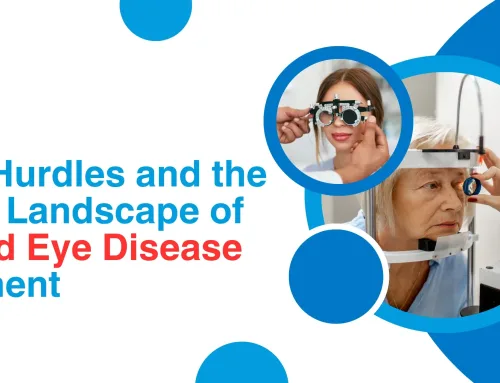If you have a healthy body, you still need to see a health care provider from time to time. The purpose of these visits are:
- Know your provider when you are sick
- Screenings for medical problems
- Update vaccinations
- Evaluate your risk for medical issues in future
- Maintain a healthy lifestyle
It is important to visit your provider when you are in the age group of 40 to 64 years. Some of the screening guidelines for full body check are discussed here.
Blood pressure screening
- You should check your pressure at least once in every 2 years. When the top number is from 120 to 139 mm Hg or the bottom number is from 80 to 89 mm Hg, you should check blood pressure each year.
- If the top number is 130 or more and the bottom number is 80 or more, then you need to book an appointment with your provider to know how to lessen blood pressure.
- If you suffer from heart disease, diabetes, kidney problems, or other problems, then you have to check your pressure often. This should be at least once a year.
- Check blood pressure screenings in your area. Ask your provider to check your pressure from time to time.
Breast cancer screening
- Women may conduct breast self-examination in a month. But experts do not agree with the benefits of breast self-exams for detecting breast cancer or saving lives. Talk to your provider and know what is right for you.
- Your provider may perform a clinical breast examination, as a part of a preventive exam.
- Women in the age group of 40 to 49 years may conduct a mammogram once every 1 to 2 years.
- Women within 50 to 75 years should do a mammogram every 1 to 2 years, as per the risk factors, to detect breast cancer.
- Women whose mothers or sisters had breast cancer at a young age should perform mammograms every year.
- If you have other risk factors for breast cancer, then your provider may suggest an MRI scan, breast ultrasound, or mammogram.
Cervical cancer screening
The screening for cervical cancer starts at 21 years. Once the first test is over:
- Women from the age of 30 to 65 years should conduct screening through either a pap test every 3 years or an HPV test every 5 years.
- If you or your sex partner has other new partners, then you need to do a Pap test every 3 years.
- Women from 65 to 70 years may not do Pap tests as long as they have had 3 normal tests in the last 10 years.
- Women who had precancer or cervical dysplasia and had undergone treatment need to do Pap tests for 20 years after the treatment or till 65 years.
- If you have had to remove your cervix and uterus and have not been diagnosed with cervical cancer, then you do not need to conduct Pap smears.
Cholesterol screening
- The starting age for cholesterol screening is 45 years for women without any known risk factors for coronary heart disease.
- After you begin with cholesterol screening, it is necessary to check your cholesterol level in every 5 years.
- You have to repeat the test soon when there are some changes in lifestyle such as weight gain or diet.
- With higher cholesterol levels, heart disease, diabetes, kidney problems or other conditions, it is necessary to check yourself from time to time.
Colorectal cancer screening
If you are below 45 years, then you should speak with your provider for colorectal cancer screening. When you have a family history of polyps or colon cancer, screening is necessary. Screening is needed when you have risk factors such as past history of polyps or inflammatory bowel disease.
When you are in the age group of 45 to 75 years, you should do screening for colorectal cancer. Different screening tests for full body check in London include:
- A fecal immunochemical test (FIT) or stool-based fecal occult blood (gFOBT) in a year
- CT colonography or virtual colposcopy in every 5 years
- Colposcopy in every 10 years
- A stool DNA-FIT test in every 1 to 3 years
- Flexible sigmoidoscopy in every 5 years or 10 years with stool testing and FIT done every year
You may have to perform a colonoscopy often when there are some risk factors for colorectal cancer like:
- History of growths in the colon known as adenomatous polyps
- Family record of colorectal cancer
- Ulcerative colitis
Dental examination
Visit a dentist at least two times a year for dental examination and mouth cleanings. The dentist can assess whether you need to go for frequent visits.
Diabetes screening
- If you are above 44 years, you should to conduct screening in every 3 years.
- Having a BMI above 25 means that you are overweight. In this case, you should conduct screening at 35 years.
- If the blood pressure is more than 130/80 mm Hg, or there are other risk factors for diabetes, then your provider may test your sugar level for diabetes.
Eye examination
- You need to perform an eye examination in every 2 to 4 years when you are from 40 to 54 years. This is also necessary to do within 1 to 3 years when you are in the age group of 55 to 64 years.
- Your provider may suggest eye examinations often when you face vision problems or risks with glaucoma.
- You need to check your eyes once in a year when you have diabetes.
Infectious disease screening
- Hepatitis C
- Chlamydia
- Syphilis
- HIV
Lung cancer screening
- You are within 50 to 85 years
- You have a smoking history for the last 20 years
- You smoke at present or have quit smoking in the last 15 years
Osteoporosis screening
- Women above 50 years with fractures should undergo bone density tests.
- If you are below 65 years and have risk factors for osteoporosis, then it is important to conduct screening.
Physical examination
- You need to check your blood pressure once a year.
- Your provider may suggest checking cholesterol level every 5 years when you have risk factors for heart disease.
- Your weight, height, and body mass index (BMI) should be checked during each examination.
During the examination, your provider may ask you about:
- Use of alcohol and tobacco
- Depression
- Exercise and diet
- Safety issues related to smoke detectors and seat belts
Skin examination
The provider may evaluate your skin for signs of skin cancer when you are at greater risk. People at high risk include the ones who have had skin cancer in the past, have a weak immune system or close relatives suffering from skin cancer.
You need to book an appointment at PrivateGPs.London and conduct health screenings when you are in the age group of 40 to 64 years.





![Home Depot Health Check App: Employees And Associates Will Enjoy Unbelievably Great Benefits[2023]](https://timeforknowledge.com/wp-content/uploads/2023/12/Home-Depot-Health-Check-500x383.webp)




